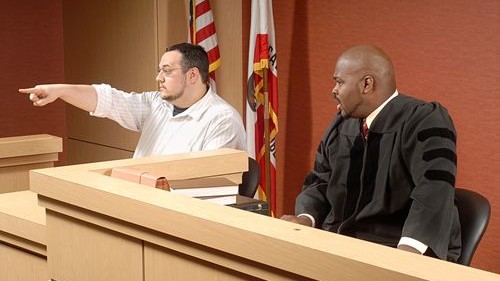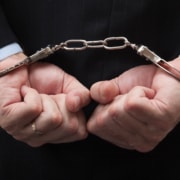How Reliable Are Witnesses to a Crime?
When you’ve been formally charged with a criminal offense, there is a lot at stake. Maybe someone mistakenly fingered you in a lineup or believes that they saw you take part in a criminal act. Unless you plead guilty to that crime, which we don’t normally recommend, it will be up to the state of Alabama to prove your guilt beyond a reasonable doubt.
One of the ways that the state will attempt to prove guilt in a criminal case is through the testimony of witnesses. The fact that your fate may be in the hands of any number of witnesses is likely a terrifying prospect. So, how reliable are these witness testimonies? It turns out they are less reliable than the legal system would like you to believe.
The Basics of a Criminal Prosecution
As a criminal prosecution state, it is the responsibility of the prosecuting attorney to present enough evidence to a judge or jury that proves guilt beyond a reasonable doubt. The “reasonable doubt” threshold is the highest legal standard in the U.S. justice system, and many legal scholars and experts believe that a guilty verdict equates to a 99 percent or greater probability of the defendant’s guilt.
Not only does this mean that a lot of stock is placed on a guilty verdict in a criminal case, but also that the evidence used to reach that verdict is critical. When there is an error in the evidence or a tainted witness, there is a chance that an innocent party could be wrongly convicted.
When Witness Testimony is Presented at Trial?
There are several types of evidence that might be used in a criminal trial. The prosecution might present physical, documentary, demonstrative, and testimonial evidence. Testimonial evidence refers to having witnesses tell what they know, saw, or heard to support the prosecution’s case.
Regarding witness testimony, jurors are instructed to decide for themselves the believability of a witness. Eyewitnesses are not the same as experts who will testify about an area of specialty. Instead, these witnesses relay the facts as they experienced them when the crime took place.
How Reliable Are Witnesses to a Crime?
Jurors must decide whether they believe that a witness is reliable and credible, but there have been some studies that relate to the reliability of crime witnesses. In short, there can be some significant flaws in eyewitness testimony that could impact the outcome of a criminal case.
According to the University of Michigan Law School’s National Registry of Exonerations, more than 1,400 people convicted of serious crimes over the past 25 years have been proven innocent. In many of these cases, a significant factor that led to these false convictions was faulty eyewitness testimony.
The fact is that the testimony of eyewitnesses can be seriously flawed for several reasons including:
- The presence of weapons at a crime that causes stress;
- Other stresses at the crime scene or during the identification process;
- The perpetrator’s use of a disguise during the crime;
- Racial disparities between the accused and the witness, known as “cross-racial identification,” which makes remembering or distinguishing certain characteristics more difficult;
- Brief times allotted for viewing witnesses in a lineup or during other procedures;
- Darkness, distance, or extreme weather conditions when the crime took place that might obscure visibility;
- Any subtle suggestions from law enforcement that prompt witnesses to choose one suspect over another; and
- Characteristics of witnesses that make recall difficult such as age-related memory loss, not wearing prescribed glasses, or the consumption of alcohol or drugs.
Any one or several of these factors could lead a witness to a crime to be unreliable. Even victims can make many of these same errors and accuse the wrong person of committing a crime. If you have been charged with a crime, even if there are witnesses, that does not mean that your conviction is a certainty.
Speak with a Qualified Alabama Criminal Defense Attorney
If you have been accused of a criminal offense in Alabama, you need to speak with a qualified defense attorney about effective defense strategies for your case. At Alsobrook Jackson, Attorneys at Law, we have experience representing clients throughout Auburn, Opelika, and Lee County in some of the most serious criminal cases. Contact our office now at 334-737-3718 or reach us online to schedule a free consultation.
















